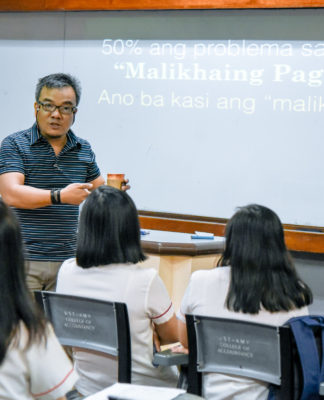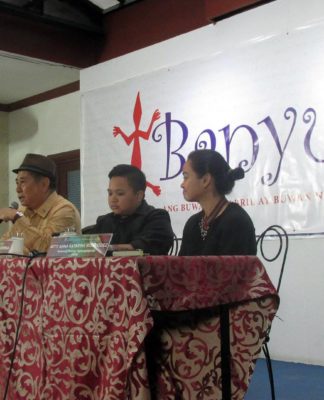 POPE Francis’ declaration of the first day of September as the annual World Day of Prayer for the Care of Creations is arguably the best time for the Pope to reiterate that being stewards of Creation does not only mean people should protect the environment, but that they should also check the human corruption and spiritual “pollution” that have caused the environmental crisis–among several crises–in the first place.
POPE Francis’ declaration of the first day of September as the annual World Day of Prayer for the Care of Creations is arguably the best time for the Pope to reiterate that being stewards of Creation does not only mean people should protect the environment, but that they should also check the human corruption and spiritual “pollution” that have caused the environmental crisis–among several crises–in the first place.
With “Laudato Si’,” his second encyclical, Pope Francis has called for the revitalization of God’s creation and reminded the faithful that along with upholding life, practicing charity, promoting justice, and observing morality, they must also protect the environment.
Pope Francis’ 168-page encyclical can be summarized thus: humanity cannot free the “pollution-plagued” world from trafficking of endangered species while remaining completely indifferent to human trafficking, unconcerned about the poor, or destroying another human being deemed unwanted.
This is a challenge for the Philippines, the largest Catholic nation in Asia.
Climate change, pollution, decline in the quality of human life, social breakdown, and global inequality, cited by Pope Francis as major “pollutions” of the Earth, are experienced by most Filipinos.
The country has seen the reckless exploitation of the environment in the name of financial gain.
Corruption, drug and human trafficking, and killings populate the news headlines. Gross iniquity in social and economic relations show the intractability of the problems facing many Filipinos. The rich and the powerful prey on the weak and the powerless.
Pope Francis blames the intractability of the environmental disaster facing the globe on the “lords” of political and economic power. The same lords are to blame for social and economic iniquity facing Philippine society. They are the ones whose interests have led to the despoiliation of the environment.
In the fight to protect the environment, young people have a leading role.
More Filipino Catholics should support the Global Catholic Change Movement, an international petition aiming to cut excessive carbon emissions and to assist the vulnerable in coping with the effects of environmental changes.
In the Archdiocese of Manila alone, more than 1,000 priests, religious, and lay leaders have signed the petition.
This support would be essential as Church leaders call for a global climate treaty during the Paris Climate Change Conference in November.
Even before the release of the encyclical, Pope Francis already said that Filipinos, especially the youth, can do something to preserve God’s Creation.
“We need to see, with the eyes of faith, the beauty of God’s saving plan, the link between the natural environment and the dignity of the human person. As stewards of God’s Creation, we are called to make the earth a beautiful garden for the human family,” the Pope said in his undelivered speech during his visit to the University last Jan. 18.
As citizens of a predominantly Catholic nation, we are expected to act as global leaders in terms of virtuous culture and upholding morality. Thus, we should not let the passage of bills and promulgation of laws that we think contradict Church’s teachings and destroy human life and dignity.
















